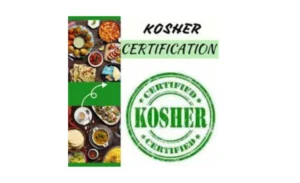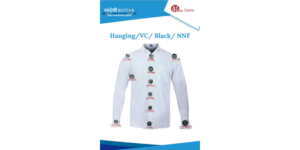Kosher Certification: A Mark of Quality, Trust, and Transparency

Kosher Certification
In today’s fast-paced food industry, trust plays a major role in buying decisions. Consumers are no longer satisfied with just good taste—they want to know where their food comes from, how it’s made, and whether it meets certain ethical or dietary standards. One label that continues to gain recognition across cultures is Kosher Certification.
What Is Kosher Certification?
Kosher certification confirms that a food or beverage product complies with traditional Jewish dietary laws, known as kashrut. These laws outline which foods are permitted, how they must be prepared, and how they should be handled and served. A certified rabbinic authority oversees this process, reviewing not only the ingredients but also the methods used during production.
Once a product passes the required inspections, it receives a kosher symbol on its packaging. This symbol isn’t just for Jewish consumers—it’s become a widely recognized sign of careful food handling, ingredient transparency, and quality assurance.
Why Kosher Appeals to More Than Just One Group
Although kosher laws are rooted in religious tradition, kosher certification now holds value far beyond faith-based communities. Many people with dietary concerns, including vegetarians, vegans, and individuals with food allergies, trust kosher labels because of their strict inspection standards. Even health-conscious shoppers often choose kosher products because they believe the certification reflects a higher level of quality control.
From a business perspective, companies that achieve kosher status can reach a broader audience. It helps food brands stand out in a crowded market, tap into international export opportunities, and build stronger customer loyalty.
How the Certification Process Works
The journey to kosher certification begins when a company contacts an authorized kosher agency. Inspectors visit the production facility to evaluate ingredient sourcing, equipment, storage, and handling procedures. If everything complies with kosher standards, the product earns the certifications and can display the symbol on its packaging.
Companies must also commit to ongoing compliance. Regular inspections ensure continued adherence to rules, keeping both the certification and consumer trust intact.
The Business and Consumer Value
Securing kosher certification is more than a marketing move—it’s a long-term investment in brand integrity and consumer confidence. It signals that a company takes transparency and ethical production seriously, which today’s buyers increasingly demand.
Final Thought
Whether you’re a manufacturer, retailer, or everyday shopper, understanding the meaning behind kosher certification helps you make more informed choices. It’s not just a label—it’s a promise of purity, safety, and trust.

